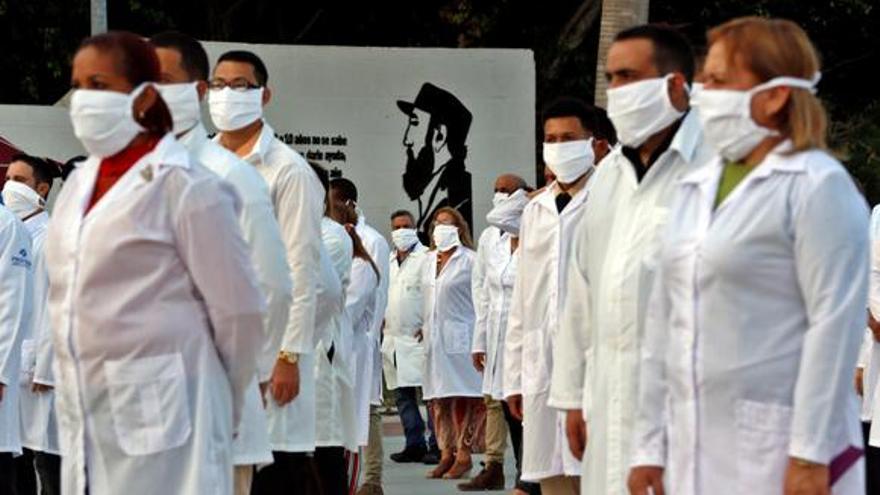
![]() 14ymedio, Havana, 19 July 2022 — The United States Government once again includes Cuba, for the fourth consecutive year, on its list of countries that don’t comply with international standards regarding human trafficking.
14ymedio, Havana, 19 July 2022 — The United States Government once again includes Cuba, for the fourth consecutive year, on its list of countries that don’t comply with international standards regarding human trafficking.
In its latest report on the subject, published on Tuesday by the State Department, the Island is among 11 countries that present “a documented policy or pattern of human trafficking,” such as “trafficking in government-funded programs” and “forced labor in medical services,” in clear allusion to internationalist missions, which have been denounced by international organizations.
In addition to Cuba, Russia, North Korea, Iran, Syria, Afghanistan, South Sudan, Yemen, Eritrea, Burma and Turkmenistan are also listed as nations where it is the State itself that participates in human trafficking.
In general, the island is on the list of 22 blacklisted countries that don’t comply with the “minimum standards” set by the United Nations against human trafficking — mainly the Palermo Protocols — and that are also not making significant efforts to comply with them.
Belarus is on the list for the first time, with the United States saying that the government of Alexander Lukashenko “orchestrated an immigration crisis on its borders with Latvia, Lithuania and Poland,” encouraging irregular migrants to cross without addressing possible indicators of human trafficking.
Countries such as Venezuela, Nicaragua, China and Vietnam are also listed. Regarding the regime of Nicolás Maduro, the United States emphasizes that “it continued to provide support and maintained a permissive environment to non-state armed groups that recruited and used child soldiers for armed conflict and collaborated in sex trafficking and forced labor while operating with impunity.”
As for Cuba, which first entered the list in 2019, the document admits that, “despite the lack of significant efforts,” the regime of Miguel Díaz-Canel has taken “some steps” to address human trafficking, such as “the investigation, prosecution and conviction of traffickers.” However, it emphasizes that during 2022 there was a “government policy or pattern of profit” of workers’ export programs “with strong indications” of forced labor.
On this point, Washington specifically mentions Cuban medical brigades in other countries and says that Havana “continued to deploy Cuban workers in foreign countries using deceptive and coercive tactics” and without addressing “labor violations and trafficking crimes.”
In addition, it mentions “the growing number of allegations” by NGOs, former participants in these missions and foreign governments about the alleged involvement of Cuban officials in these “abuses.”
Thus, as organizations such as Human Rights Watch and Prisoners Defenders have denounced, the United States accuses Cuba of not informing the participants in these programs about the terms of their contracts, which varied from country to country; of confiscating their passports, professional accreditations and salaries; and threatening health professionals and their families if they abandoned those missions.
With regard to Nicaragua, the report says that Daniel Ortega’s government has “minimized” the seriousness of this phenomenon, despite having also carried out “some measures” to address it, such as “the prosecution and conviction of four human traffickers for sexual exploitation.”
Translated by Regina Anavy
____________
COLLABORATE WITH OUR WORK: The 14ymedio team is committed to practicing serious journalism that reflects Cuba’s reality in all its depth. Thank you for joining us on this long journey. We invite you to continue supporting us by becoming a member of 14ymedio now. Together we can continue transforming journalism in Cuba.
